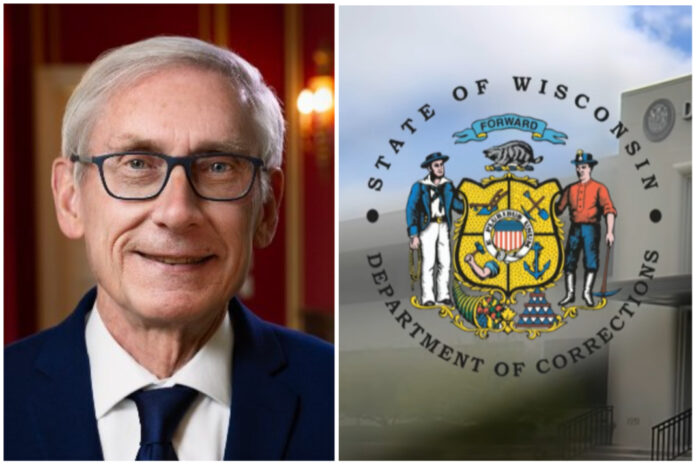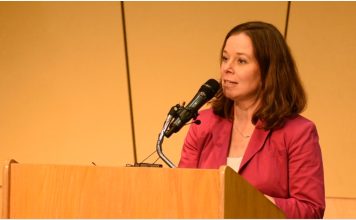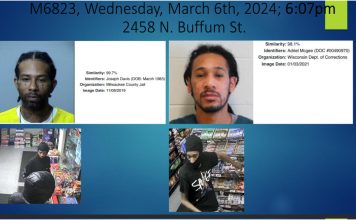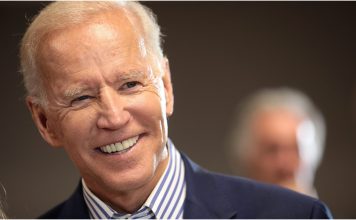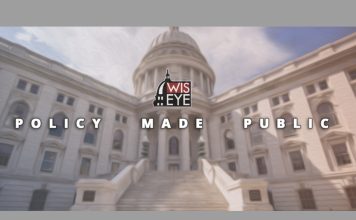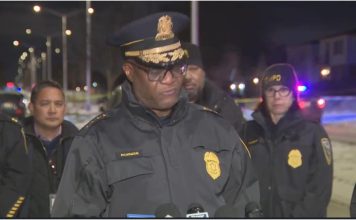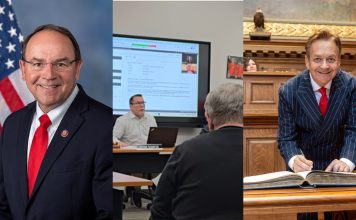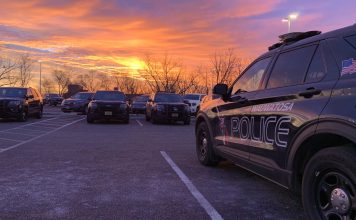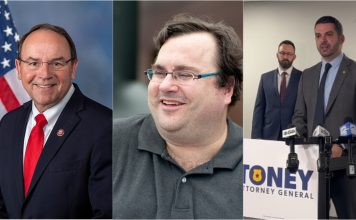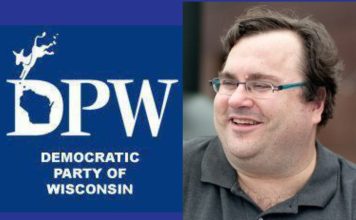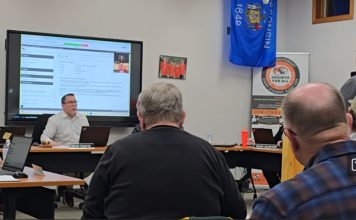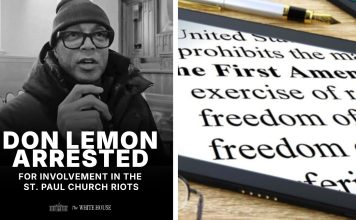Gov. Tony Evers pushed expansion of the state’s “earned release” program, but it’s endangering public safety.
Gov. Tony Evers’ administration expanded the state’s earned release program in multiple ways even though more than 40% of earned release and challenge incarceration inmates are re-arrested within two years, endangering public safety, Wisconsin Right Now has documented.
That percentage of those rearrested in the two Wisconsin early release programs is from the State Department of Corrections’ own dashboard.
Although earned release is sold as being for non-assaultive substance abusers seeking treatment, we found criminals who were paroled, court records say through earned release, despite committing offenses the public would consider violent, such as battery and recklessly endangering safety.
We also found armed robbers, felons in possession of a firearm, and people with past violent records or violent charges in the same case, even habitual criminals with lengthy records. Multiple criminals were released even though they had already failed earned release or had their probation/parole revoked, sometimes in the same case. Some are now sex offenders.
It’s also questionable why Corrections believes repeat drunk drivers – we found many of them in the earned release program, including a 10th offense drunk driver – are not dangers to the community. Many in the program are drug dealers with long records. Thus, it’s not terribly surprising many reoffend.
Some people were paroled on an old offense despite multiple criminal charges since then.
Statutes are supposed to exclude a host of crimes from early release: homicide offenses, sexual assault of a child, battery, physical abuse of a child, child trafficking, and a host of child sex offenses, reckless injury, causing injury by OWI, kidnapping, stalking, and intimidating witnesses.
Recidivism data shows the early release programs are imperiling public safety at a shocking rate. Evers has tried to divert attention from paroled killers and rapists to these parole grants, mischaracterizing them. The bottom line is they’re a mess too.
A whopping 41.7% of earned release and Challenge Incarceration parolees from 2017-2021 were re-arrested within two years. That’s from DOC’s own data. In fact, more than one-fourth of the paroled inmates were re-arrested in one year’s time. One-third ended up re-incarcerated in three years time.
For example, The Parole Commission says Travis Link was paroled on Nov. 5, 2021, for the underlying offense of OWI-cause injury (2+). It’s a new law case that occurred in Winnebago County. He was revoked in the case in 2020 as a probation violator and sent to prison and then paroled.
The court records make it unclear what mechanism was used to free him on that count. He lives in Oshkosh today. However, Link picked up two new cases in 2020: One was for felony narcotics possession. In the second case, in Fond du Lac County, Link was convicted of hit and run, fleeing an officer, first-degree recklessly endangering safety as a repeater and operating while revoked.
“AMENDED 11/09/21: Per DOC-2259, the Department of Corrections accepted the defendant into the Substance Abuse Program (SAP) and the defendant has successfully completed said program,” court records say, adding that he would be released from prison. Earned release is a SAP program. “Amendment to Judgment of Conviction and Order – ERP,” court records say.
As the controversy over discretionary paroles of violent killers and rapists released during his tenure escalated, Evers misled the public by implying that other parole grants earned through the earned release and challenge incarceration programs are “mandatory” releases, and he has absolutely nothing to do with them. That’s not true. For starters, the Department of Corrections, which is under Evers’ authority, makes many discretionary judgments about whether inmates are released through those programs.
In fact, the governor expanded the earned release program throughout his first term. He initially vetoed a bill that would exclude more violent offenses from qualifying before suddenly signing it two years later with the election looming after many people were already released.
In 2020, Evers vetoed a bill to ban inmates from qualifying for earned release or challenge incarceration for additional violent crimes, including some firearm and sexual assault offenses. In 2022, he switched course with the election looming and signed the bill. But in between the veto and signing, dangerous offenders were released.
The governor’s Department of Corrections – run by an Evers’ cabinet appointee – has discretion over deciding inmates’ “suitability” for earned release, after judges or Corrections determine “eligibility” depending on the date of the crime. In some cases, inmates need the department’s approval to ask a judge for eligibility.
“Suitability for program enrollment is discretionary and determined by the DOC,” an internal policy document says of earned release inmates/paroles. Thus, it’s not mandatory to put anyone in the early release program.
Evers’ Department of Corrections “determines the inmate is suitable for the program” based on factors such as vague things like “inmate needs” and “department resources” and department policy.

Corrections, which falls under Evers’ authority, loosened the guidelines to allow more criminals into the program. For example, people could now qualify who were further away from finishing the confinement time portion of their sentences or who were in medium-security prisons. In addition, the Parole Commission told us in writing that the Parole Commission chair, also appointed by Evers, “signs off” on the releases. That’s to determine requirements were actually met.

The Wisconsin Parole Commission released an Excel sheet that lists 884 “parole grants” from Evers’ inauguration in 2019 through the end of 2021. We are suing them because they won’t release 2022. Hundreds of those are inmates paroled under old laws, like murderers and rapists, and some are earned release or CIP, according to court records.
The number of criminals who completed earned release and CIP, per the dashboard, is much higher (1,608 in 2022 and 2,252 in 2020 alone) than the number of those cases listed as parole grants in the Parole Commission’s sheet. We asked DOC to explain that, and they did not respond.
Although the recidivism data includes one year of Gov. Scott Walker’s tenure, the earned release and CIP program enrollments in the chart from 2018 to present peaked under Evers in 2020, before dipping after COVID.
Here’s what Evers and the media aren’t telling you about these paroles:
-
-
- Not only did a shocking percentage of criminals released early during Evers’ tenure quickly re-offend, but their offenses were serious in some cases. Among them, violent offenses. In one case, Jacob Karl was given earned release parole in 2020 for felony burglary, court records say, and is already back in prison after committing domestic violence battery less than a year later. (He had meth and repeat OWI charges at the same time as the burglary.)
- Only non-violent offenders are supposed to be released early, per state law. However, we found inmates released early for numerous crimes that the public might perceive as violent, such as second-degree recklessly endangering safety, battery, and armed robbery. For example, Daniel Haumersen, a felon and convicted burglar, was charged with two counts of armed robbery and a count of fleeing an officer in 2019 in Milwaukee County. The Parole Commission says he was paroled in November 2021. “Signed Earned Release Program/Substance Abuse Program Order has been electronically sent to DOC,” court records say. DOC petitioned the court to consider Haumersen’s early release. He’s a previous probation violator.
- In another example, the Parole Commission says that Dusty L. Hale was paroled on a battery conviction in November 2021. Court records indicate Hale was released under “ERP” in a case with convictions for battery – domestic abuse, meth possession, and endangering safety use of a dangerous weapon. As with many of the offenders, he has a lengthy criminal record. Corrections says he lives in Wisconsin Rapids today. There is no indication in that history that he was revoked. That’s even though he has new 2022 charges for meth possession and tampering with an interlock device. He’s at least a 5th offense drunk driver.
- Firearm offenders make the list. For example, Billy Demond Cooper was paroled in July 2021, according to the Parole Commission, on a charge of battery to an injunction petitioner – domestic violence, as a repeater, a case from Milwaukee in 2012. Court records don’t say the mechanism used to release him. However, in 2021, he was given “ERP” for possession of a firearm by a felon as a habitual criminal and for cocaine possession, court records show. DOC requested the court determine him eligible for the substance abuse program. Cooper has a long record. He’s a third-offense drunk driver, and he violated a domestic abuse injunction in the past and jumped bail. He also has repeated offenses for cocaine dealing.
- Some are now registered sex offenders or have past sexual assault convictions. Zachary Liu was given earned release, court records say, for a case in which he committed domestic abuse battery as a repeater and committed disorderly conduct with a dangerous weapon as a domestic abuse repeater, as well as two counts of bail jumping. He was granted parole in July 2021, according to the Parole Commission. He committed a new crime after that date for defrauding an innkeeper. His lengthy record includes a sexual assault conviction.
- The Parole Commission sheet lists the underlying offense for which people were paroled under early release, but, in many cases, the person had more serious or violent offenses in the same case.
- A large number of criminals released early under the Evers’ administration had already been revoked, failing on supervision or committing new crimes after release, sometimes in the same case. Some of them have extremely lengthy records. Joshua Berg has 22 criminal cases in Wisconsin courts. The Parole Commission says he was paroled on a burglary conviction in September 2021. The court records don’t indicate what mechanism was used to free him, but he’s had multiple cases since that one (but before the parole), mostly for fraud type charges.
- In some cases, parolees committed new crimes but weren’t revoked for them. For example, there is no evidence that Tanner B. Kent was revoked. He was released on ERP for amphetamine dealing in 2020, court records show. In 2021, he was charged in 3 new cases with….amphetamine dealing and two meth possession cases. Corrections says he’s still living in Oshkosh.
- Even when it comes to the substance abusers, the early releases are endangering public safety by curtailing the punishment faced by repeat drunk drivers (even with 10 drunk driving convictions) and heroin/methamphetamine/other drug dealers and placing them back into Wisconsin communities, where many promptly re-offend. For example, Gerald Blasczyk was given parole in 2022 under early release (ERP) for a 10th offense drunk driving conviction, according to court records. In the same 2011 case (he was sentenced in 2017 after an appellate ruling), he was also convicted of attempting to batter law enforcement officers and disorderly conduct. In 2020, he committed new crimes, including aggravated battery to the elderly and intimidating a victim. He was paroled anyway.
As with the paroles of violent criminals who committed their crimes before truth-in-sentencing, the Wisconsin Parole Commission labels the earned release and CIP releases in the Excel sheet “parole grants” and Corrections calls them “paroles.” They are listed under a column called “ParoleCommissionAction.”
Evers has labeled a little less than half of the 884 paroles in the sheet “non-discretionary” to falsely imply his administration has nothing to do with them, without specifying which ones he is talking about.
The Parole Commission made it very difficult to tell which were “earned release” under new laws versus standard paroles under old laws before truth-in-sentencing, scrubbing all references to ERP and Challenge Incarceration from the sheet by claiming they were “treatment” information. We spent weeks reviewing court records to identify and study the earned release and CIP paroles within the sheet.
It’s humorous that the Evers’ administration expanded the program and determines which criminals are suitable for it but now claims they’re forced to release the inmates on the back end.
Evers also tried to confuse people into believing the list of 884 parolees included hundreds that are “mandatory releases.” That is false. “Mandatory release” is an old law provision requiring release after two-thirds of a sentence. It’s called “MR.”
But Evers’ own Parole Commission told us in writing that the sheet of 884 does not include mandatory releases, and we verified this by running hundreds of them in the Department of Corrections’ offender database. Killers serving life sentences don’t even qualify for mandatory release, nor do they qualify for ERP or CIP. The killers were discretionary paroles.

Contrast that to what Evers wrote in a news release: “Of the 884 convicted criminals released under Gov. Evers’ administration, nearly half were released because their release was required by law. In Wisconsin, some paroles are discretionary and others are required by law, usually when an inmate reaches two-thirds of their sentence.” Again – the latter inmates were not included in the list of 884, according to the Parole Commission.
Evers is using this dodge to distract voters from the hundreds of violent criminals paroled during the first three years of his tenure, including a man who burned his wife’s head in a wood-burning stove, a man who beat a foster boy to death, a rapist who strangled and stabbed a young nurse, and a biker gang member who cut a Green Bay woman’s throat and threw her in a manure pile. These are discretionary paroles.
Here’s a section of the parole grant spreadsheet released by DOC, so you can see the labels they used.
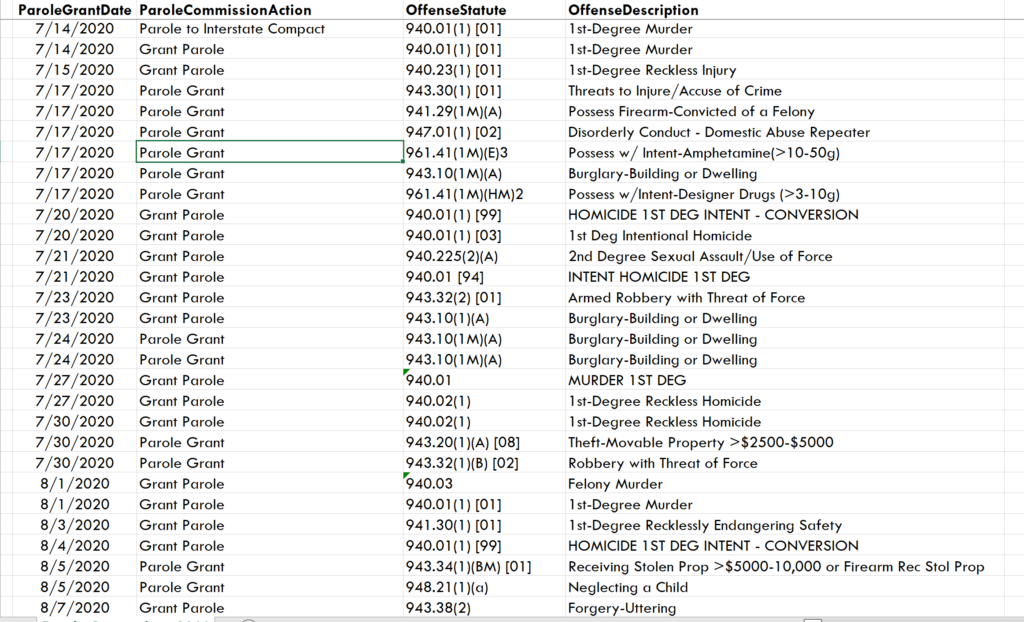 In his 2021-2023 budget recommendation, Evers recommended “expanding the earned release program” and also clarifying that it can “reduce a term of confinement below a mandatory minimum period of confinement.”
In his 2021-2023 budget recommendation, Evers recommended “expanding the earned release program” and also clarifying that it can “reduce a term of confinement below a mandatory minimum period of confinement.”That document noted that “DOC recently made changes to its suitability criteria for ERP to expand opportunities to more individuals. This additional funding will help support DOC’s policy changes. The expansion of the ERP program allows Wisconsin’s prison population to be safely reduced.”
Expanding the earned release program was called a policy goal.DOC’s goal under Evers has been expanding the criteria to allow more inmates to be released from prison.”Given the historical lack of resources in programming and treatment, DOC developed internal suitability criteria to prioritize when ERP eligible individuals may enroll in the program,” DOC wrote.
“DOC is recommending changes to current Substance Use Disorders (SUD) and ERP programs to open avenues for enrollment in ERP to individuals who are typically prevented from participating and to allow for expansion in the program.”In 2021, Evers’ Corrections Department did just that, changing policies.
When it comes to the Challenge Incarceration Program, which requires manual labor and military drills, a Corrections document outright states: “Suitability for program enrollment is discretionary and determined by the DOC.” Yet the media have used the terms “non-discretionary” and “mandatory” to imply that Evers’ administration played no role. See: DAI 300.00.12 Challenge Incarceration Program 04-12-21(3)

“One of the priorities of the agency is to reduce Wisconsin’s prison population in a safe manner that maintains public safety. Without comprehensive criminal justice reform, the Earned Release Program is one of very few mechanisms that we have internally to do so,” the Department of Corrections, a state agency under Evers’ authority, admitted in a FAQ on earned release parole grants.
“The DOC estimates that an additional 1,000 individuals will be able to complete ERP programs annually following the changes…The expansion is intended to continue to increase our completions…” Corrections wrote in 2020.
The same document says, “One of the priorities of the agency is to reduce Wisconsin’s prison population…” See: ERP Town Hall FAQs(2)
By April 2022, the state prison population was 19,878, down from 23,000 when Evers took office in 2019. Some of that is also due to court backlogs.
Corrections claims that money has been saved through these programs. But their charts don’t calculate the cost to communities, victims, police departments, and court systems when released criminals re-offend.
A third category of release, according to the Legislative Reference Bureau, is called “special action releases” which allow Corrections to release inmates due to overcrowding. We asked Corrections whether this mechanism is being used and did not get a response.
So-called “discretionary” paroles under Evers are occurring at a higher rate than Walker’s administration, even the Journal Sentinel acknowledged. Evers’ appointee to the Parole Commission released more murderers in three years than Walker released in eight, we documented.
Overall, the Parole Commission and Evers labeled 461 of the 884 paroles “non-discretionary” (we did not include paroles before Evers’ inauguration in 2019; the Milwaukee Journal Sentinel placed the overall number at 895). The Journal Sentinel noted that 593 of the parolees released under Evers were convicted of offenses “classified as violent, such as murder, rape and armed robbery.” Under the law, earned release parole grants are not supposed to apply to violent offenders as defined by statute.
A chart sent by DOC also separated out from other paroles criminals who were paroled to post truth-in-sentencing charges, to detainers, and to interstate compacts. Those are not necessarily non-discretionary, however; it just means the inmates had other charges that they still had to serve after the parole grant, that they were sent to other agencies on things like immigration holds, or that they are living out of state.
It’s also not clear whether Evers is including “presumptive mandatory release” cases under “non-discretionary.” Known as PMR, the Parole Commission split that into its own category too, and it’s different from “mandatory release” because it comes earlier under old laws. However, the Parole Commission can revoke/stop P-MR, so they have discretion there as well.
It’s not clear whether Evers is falsely including those releases under what he is misleadingly calling “mandatory” releases because he did not specify.
We asked the Parole Commission for a sheet breaking out the names of the paroles they are calling “non-discretionary” and are waiting for a response.
Evers also tried to divert attention from the killers’ releases by focusing on former Gov. Tommy Thompson’s and Scott Walker’s aggregate numbers of discretionary paroles, which is wildly misleading because both Walker and Thompson served years longer than Evers has and, until 1999, parole existed in the state, meaning every year there are fewer old law inmates who qualify to get out early under old laws.
The DOC facts sheet says that, by 2020, DOC was already working to change policies to expand early-release in multiple ways. See the document here: ERP Town Hall FAQs(2)
“DOC also wants to ensure that we’re promoting equity within the Earned Release Program,” they wrote.
They acknowledged DOC’s role: “Program Review Committees are the ‘gatekeepers’ for entry to ERP. There are multiple reports from residents about staff members at specific institutions who are ‘old school’ and seek to hold back people as much as possible.”
In 2018, Evers told the Milwaukee Journal Sentinel that his administration would develop a plan to “decrease our prison population.”
The plan’s goal would be “revising Wisconsin’s ‘truth-in-sentencing’ laws,” Evers said in 2018, according to the Milwaukee Journal Sentinel.
Evers said he wanted to reduce the state prison population by 50%.
The Capital Times noted that “Evers signaled in the interview that he would favor increasing paroles, saying he believes in ‘second chances’ and ‘redemption’ for offenders.”
The Cap Times noted, “There are some things the Democratic governor’s administration can do on its own: increase paroles…”
The Cap Times also noted that Evers said “people are being incarcerated for too long.”
-


